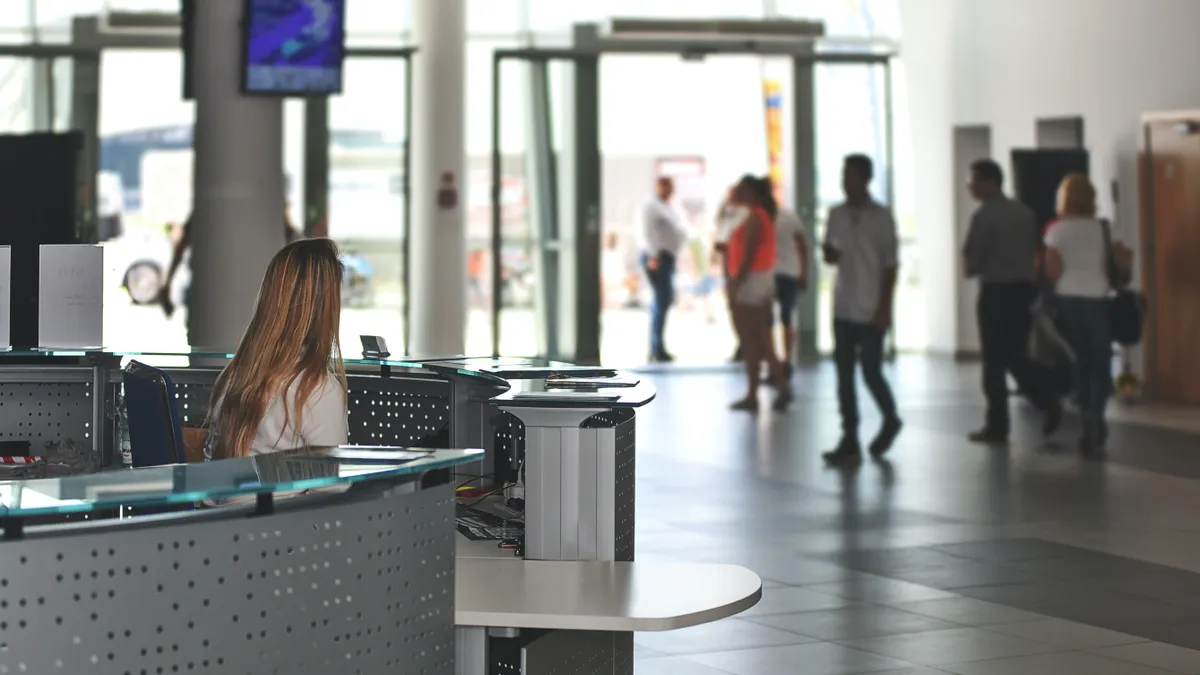Dive Brief:
- Sixty-four percent of U.S. workers surveyed by consulting firm Eagle Hill said that the employee experience impacts their ability to serve customers. Dissatisfied employees were more than 2.5 times more likely to say they do not provide excellent customer service and twice as likely to say they do not deliver quality outcomes.
- In addition to customer satisfaction results, respondents said their feelings about their day-to-day work experience, both positive and negative, also affect their productivity (70%) and their ability to do meaningful work (69%).
- The survey also asked respondents to rank the factors that matter most in their day-to-day experience, finding that individualistic factors, such as work-life balance (41%) and purposeful work (32%), matter more to workers than team-based factors like authentic relationships with supervisors/managers (13%) and authentic relationships with leaders (11%).
Dive Insight:
The finding that unhappy employees lead to negative customer service experiences is hardly a shocker. Yet many companies invest significantly in strategies to improve the customer service experience without doing the sometimes harder, more indirect work of investing in employee satisfaction — a strategy that can pay dividends.
As Eagle Hill pointed out in its report on the findings, "The big investments organizations have made for years to improve the customer end of the customer experience — enhancing self-service options, enriching websites, and offering greater channel flexibility, for example — do not touch the human relationships that lie at the real heart of the customer experience."
Research has surfaced in previous months that can help employers build an evidence-based approach to increasing their employees' happiness. A May survey from Paychex found that non-work get-togethers did little to improve employee morale — suggesting workers may feel compelled to attend such events, which would put a strain on the work-life balance employees reported a desire for in the Eagle Hill survey.
Videoconferencing software company Zoom had the happiest employees in 2020, according to workplace culture and compensation monitoring site Comparably. A closer look from CNBC shows Zoom employees were highly satisfied with their compensation, experienced a "strong in-office culture" which the company invested in maintaining during the pandemic-induced switch to remote work, and enjoyed passionate leadership.
As the CNBC report points out, companies that rated highly in employee happiness tended to be in tech, business services and insurance — industries that could easily adjust in the switch to remote work, sustained few layoffs, and, like Zoom, may have even benefited from needs that emerged during the pandemic.
As industries with frontline workers — like retail and restaurants — struggle to maintain employment, however, employers are investing in employee happiness in ways they haven't tried before. Restaurants are focusing more on developing worker skills through cross-training, for example, and are boosting educational and health benefits — strategies that may help increase workers' career mobility. And clothing retailer Kohl's recently announced that it will pay workers who stay through the holiday season a bonus.












